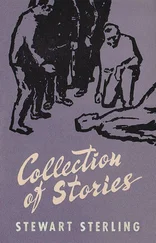Her voice wasn’t panicky; it was still calm and self-possessed, but there was no mistaking the earnest ring to it. Either she was an awfully good actress, or this wasn’t any act. “Now listen, Ed. You ought to know I wouldn’t joke about a thing like that. As a matter of fact, I wrote her a long letter only yesterday afternoon. It ought to be in your mailbox by now. If she’s not there with you, I’d make it my business to find out where she is, if I were you. And I wouldn’t put it off, either!”
He still kept wondering: “Is she ribbing me or isn’t she?” He drawled undecidedly, “Well, it’s damned peculiar.”
“I certainly agree with you,” she said briskly. He just chewed the inner tube of his cheek.
“Well, will you let me know as soon as you find out where she is?” she concluded. “I don’t want to worry, and naturally I won’t be able to help doing so until I hear that she’s all right.”
He hung up, and first he was surer than ever that it wasn’t true she wasn’t there. For one thing, the mother hadn’t seemed worried enough to make it convincing. He thought, “I’ll be damned if I call back again, so you and she can have the laugh on me. She’s up there with you right now.”
But then he went outside and opened the mailbox, and there was a letter for Smiles with her mother’s name on the envelope, and postmarked 6:30 the evening before.
He opened it and read it through. It was bona fide, all right; leisurely, chatty, nothing fake about it. One of those letters that are written over a period of days, a little at a time. There was no mistaking it; up to the time it had been mailed, she hadn’t seen her daughter for months. And Smiles had left him the night before; if she’d gone up there at all, she would have been there long before then.
He didn’t feel so chipper any more, after that. She wouldn’t have stayed away this long if she’d been here in town, where she could walk or take a cab back to the house. There was nothing to be that sore about. And she’d intended going up there. The reason he felt sure of that was this: With her, it wasn’t a light decision, lightly taken and lightly discarded. She hadn’t been living home with her mother when he married her. She’d been on her own down here for several years before then. They corresponded regularly, they were on good terms, but the mother’s remarriage had made a difference. In other words, it wasn’t a case of flying straight back to the nest the first time she’d lost a few feathers. It was not only a fairly lengthy trip up there, but they had not seen each other for several years. So if she’d said she was going up there, it was no fleeting impulse, but a rational, clear-cut decision, and she was the kind of girl who would carry it out once she had arrived at it.
He put his hat on, straightened his tie, left the house, and went downtown. There was only one way she could get anywhere near Denby, and that was by bus. It wasn’t serviced by train.
Of the two main bus systems, one ran an express line that didn’t stop anywhere near there; you had to go all the way to the Canadian border and then double back nearly half of the way by local, to get within hailing distance. The smaller line ran several a day, in each direction, up through there to the nearest large city beyond; they stopped there by request. It was obvious which of the two systems she’d taken.
That should have simplified matters greatly for him; he found out it didn’t. He went down to the terminal and approached the ticket-seller.
“Were you on duty here Tuesday night?”
“Yeah, from six on. That’s my shift every night.”
“I’m trying to locate someone. Look. I know you’re selling tickets all night long, but maybe you can remember her.” He swallowed a lump in his throat. “She’s young, only twenty, with blond hair. So pretty you’d look at her twice, if you ever saw her the first time; I know you would. Her eyes are sort of crinkly and smiling. Even when her mouth isn’t smiling, her eyes are. She — she bought a ticket to Denby.”
The man turned around and took a pack of tickets out of a pigeonhole and blew a layer of dust off them. “I haven’t sold a ticket to Denby in over a month.” They had a rubber band around them. All but the top one. That blew off with his breath.
That seemed to do something to his powers of memory. He ducked down out of sight, came up with it from the floor. “Wait a minute,” he said, prodding his thumbnail between two of his teeth. “I don’t remember anything much about any eyes or smile, but there was a young woman came up and priced the fare to Denby. I guess it was night before last, at that. Seeing this one ticket pulled loose out of the batch reminded me of it. I told her how much it was, and I snagged out a ticket — this loose one here. But then she couldn’t make it; I dunno, she didn’t have enough money on her or something. She looked at her wrist watch, and asked me how late the pawnshops stay open. I told her they were all closed by then. Then she shoveled all the money she could round up across the counter at me and asked me how far that would take her. So I counted and told her, and she told me to give her a ticket to that far.”
Bliss was hanging onto his words, hands gripping the counter until his knuckles showed white. “Yes, but where to?”
The ticket-seller’s eyelids drooped deprecatingly. “That’s the trouble,” he said, easing the back of his collar. “I can’t remember that part of it. I can’t even remember how much the amount came to, now, any more. If I could, I could get the destination by elimination.”
“If I only knew how much she had in her handbag when she left the house,” Bliss thought desolately, “we could work it out together, him and me.” He prodded: “Three dollars? Four? Five?”
The ticket vendor shook his head baffledly. “No use, it won’t come back. I’m juggling so many figures all night long, every night in the week—”
Bliss slumped lower before the sill. “But don’t you keep a record of what places you sell tickets to?”
“No, just the total take for the night, without breaking it down.”
He was as bad off as before. “Then you can’t tell me for sure whether she did get on the bus that night or not?”
Meanwhile an impatient line had formed behind Bliss, and the ticket-seller was getting fidgety.
“No. The driver might remember her. Look at it this way: she only stood in front of me for a minute or two at the most. If she got on the bus at all, she sat in back of him for anywhere from an hour to four hours. Remember, I’m not even guaranteeing that the party I just told you about is the same one you mean. It’s just a vague incident to me.”
“Would the same one that made Tuesday night’s run be back by now?”
“Sure, he’s going out tonight again.” The ticket man looked at a chart. “Go over there and ask for No. 27. Next!”
No. 27 put down his coffee mug, swiveled around on the counter stool, and looked at his questioner.
“Yare, I made Tuesday night’s upstate run.”
“Did you take a pretty blond girl, dressed in a gray jacket and skirt, as far as Denby?”
No. 27 stopped looking at him. His face stayed on in the same direction, but he was looking at other things. “Nawr, I didn’t.”
“Well, was she on the bus at all?”
No. 27’s eyes remained at a tangent from the man he was answering. “Nawr, she wasn’t.”
“What’re you acting so evasive about? I can tell you’re hiding something, just by looking at you.”
“I said, ‘Nawr, I didn’t.’”
“Listen. I’m her husband. I’ve got to know. Here, take this, only tell me, will you? I’ve got to know. It’s an awful feeling!”
The driver took a hitch in his belt. “I get good wages. A ten-dollar bill wouldn’t make me say I sawr someone when I didn’t. No, nor a twenty, nor a century either. That’s an old one. It would only make me lose my rating with the company.” He swung around on his stool, took up his coffee mug again. “I only sawr the road,” he said truculently. “I ain’t supposed to see who’s riding in back of me.”
Читать дальше












